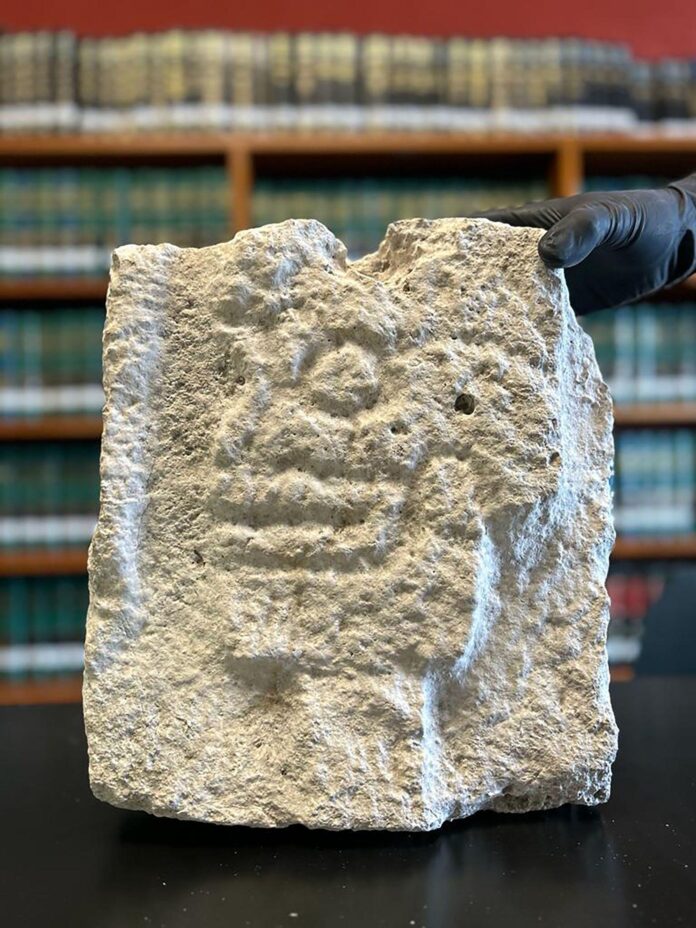An ancient Maya relief sculpture that was found in a German antique shop and is suspected to have been looted from Mexico was returned to that country on 18 July, by way of the Mexican consulate in Frankfurt.
The artefact, a relic from the Maya civilisation, features a relief carving of a skull in profile. Historians posit that the object comprised one block in a wall of similar carvings meant to evoke a Tzompantli, or skull rack, a ritualistic Mesoamerican palisade that facilitated the public display of skulls belonging to war captives or sacrifical victims. The object was likely created in the lowlands of northern Yucatán during the Late Classic or Postclassical Mesoamerician periods (CE750-1244). The object is consistent with other items hailing from Chichén Itzá, the pre-Hispanic city built by the Mayans in the Terminal Classic period.
The skull carving’s voluntary restitution marks another success in Mexico’s #MiPatrimonioNoSeVende campaign, translated to English as “my heritage is not for sale”, a social media initiative popularised by the Mexican government that promotes the recovery of illegally trafficked cultural property.
In June, an ornate stone yoke worn by players of Mesoamerican ball games was returned to Mexico after being retrieved from an Austrian auction house. In April, Mexico’s Secretary of Foreign Affairs Marcelo Ebrard announced that a one-tonne carved Olmec statue dating back thousands of years would be returned to Mexico after decades in the United States. Last December, the Netherlands returned 223 artefacts to Mexican authorities.
In a statement, a spokesperson for Mexico’s National Institute of Anthropology and History (INAH), said, “The restitution of this archaeological piece is a sample of the work of the government of Mexico, and the success of the legal strategy of the foreign ministry’s legal team, in the identification and restitution of the patrimony of the country that is abroad, as well as the fight against the trafficking of cultural assets and international cooperation for the conservation of the historical past of nations.”
While the statement does not mention when or where the recovered skull carving will go on display, INAH is in the process of building a new museum at Chichén Itzá to accommodate artefacts found at the site and others in the region. The new institution is being constructed in anticipation of the completion of the controversial, $20bn Maya Train project, which is expected to bring even more visitors to Chichén Itzá—already the most visited archaeological site in Mexico.

























